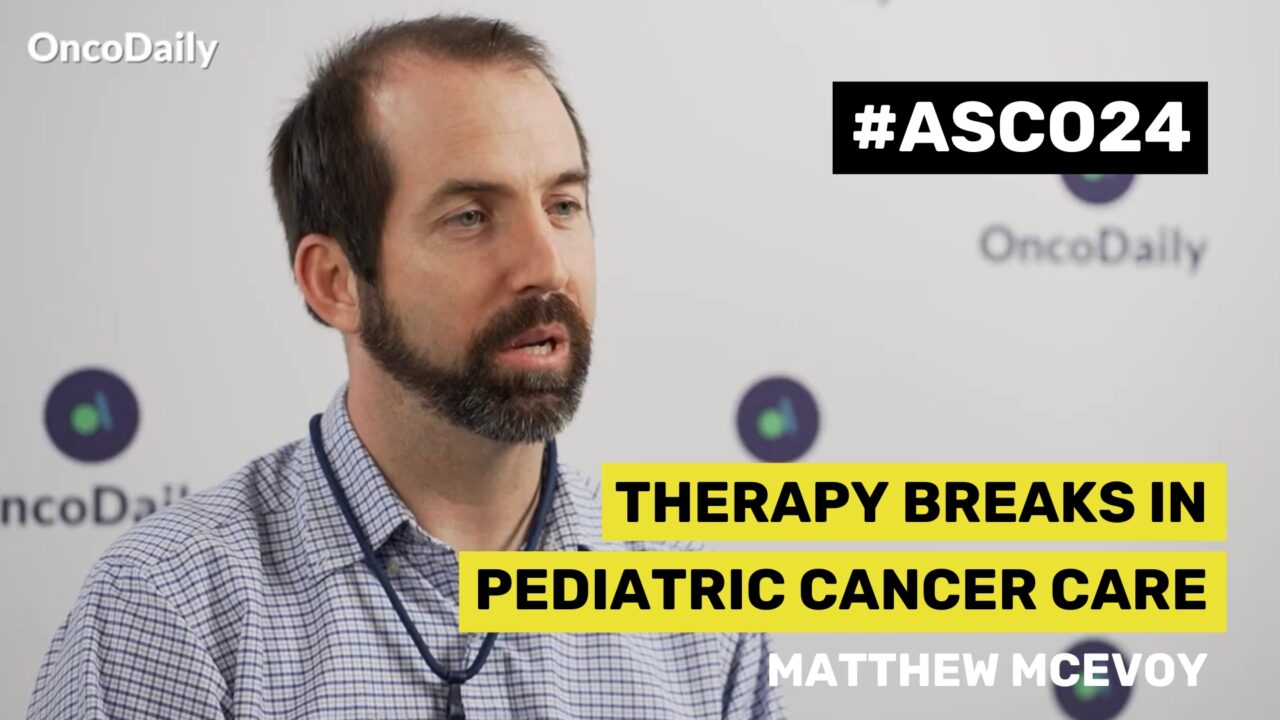The American Society of Clinical Oncology (ASCO) Annual Meeting is one of the largest and most prestigious conferences in the field of oncology. This year, the meeting took place from May 31 to June 4 in Chicago, Illinois. The event gathers oncologists, researchers, and healthcare professionals from around the world to discuss the latest advancements in cancer research, treatment, and patient care. Keynote sessions, research presentations, and panel discussions are typically part of the agenda, providing attendees with valuable insights into emerging trends and innovations in oncology.
This year, OncoDaily was at ASCO 2024 for the first time covering the meeting on-site. We had the pleasure of interviewing researchers who summarized the highlights of their work.
In this video, Matthew McEvoy from Texas Children’s Hospital, shared insights on ‘Impact of breaks in therapy on survival for pediatric patients with relapsed or refractory solid tumors: A single-center study.‘
My name is Dr. Matthew McEvoy and I’m from Texas Children’s Hospital in Houston, Texas. And on behalf of my colleagues, I’m going to talk a little bit about the project that we presented here at the ASCO Conference in Chicago. We did a retrospective chart review of pediatric patients with relapsed solid tumors and tried to explore what their post relapse clinical course was like.
We specifically looked at whether they had breaks in therapy. We defined breaks as at least 30 days between a relapse event and the start of subsequent therapy. We wanted to know a little bit more about what children experienced after they had a relapse of their solid tumor.
We had 466 patients in our chart review. They spanned a wide variety of ages, race, ethnicity, and solid tumor diagnoses. And they had a median of three relapse events in their post relapse course with a median of three months in between each event.
We looked at the percentage of patients that took a break and that was about 26% of patients that had at least one break in their post relapse course. We looked at reasons behind the break. So we found that some patients took a break intentionally or a goal concordant break.
And those reasons were either related to decision making, for example, seeking a second opinion or asking for time to decide. And secondly, those were related to quality of life reasons. So for example, going on a make a wish trip or trying to finish school or attending a summer camp or something like that.
Another category for reasons for breaks was an undesired reason or a delay. And some examples of that were a care coordination issue or a drug shortage or safety concerns related to organ function recovery. We also looked at survival based on whether a patient took a break or not.
We found that patients that had at least one intentional break of any kind lived longer than those who did not have a break. We then did a multivariable Cox regression and adjusted for several different variables, including diagnosis stage and number of relapse events. And we broke up the cohort into different groups based on type of break.
And we found a statistically significant difference in survival on Kaplan-Meier curves and on the multivariable Cox regression, those differences held. And that finding was that patients that had an intentional break lived longer than those who did not. We do have some limitations of our study.
It is a single institution experience. It’s only focused on children with solid tumors. There’s a confounder for performance status and providers might have a sense of urgency or a lack of urgency, depending on how the patient is doing at the time of a relapse event.
But we would encourage providers to take their time for certain patients, to explore goals of care, to engage in thoughtful shared decision-making with their families. And if a break is in alignment with the family’s goals to consider that knowing that it likely will not compromise the overall survival in the post-event time frame. So thank you to ASCO for allowing us to share the results of our study so far.
And thank you to OncoDaily for having me on this interview.
More videos and content from ASCO 2024 on OncoDaily.


